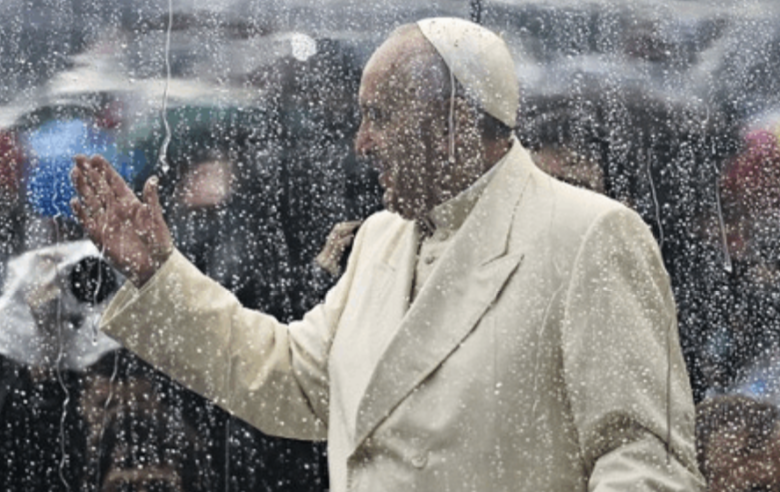Religious institutions need to set their moral compass on one of the great humanitarian issues of our time
The Guardian (London), May 7th 2014

Photograph: Vincenzo Pinto/AFP/Getty Images
By Christiana Figueres
SAVING THE EARTH AND ITS PEOPLES FROM DANGEROUS CLIMATE CHANGE is an economic, social and environmental issue – and a moral and ethical one too that goes to the core of many, if not all of the world’s great faiths.
Unchecked, the rise in greenhouse gas emissions is likely to visit ever higher levels of suffering on the vulnerable, the marginalised and indeed people everywhere.
The Himalayan country of Nepal, which I just visited, is a case in point: here unstable lakes are forming from melting glaciers high in the mountains. Some have already burst their banks sending vertical tsunamis down valleys washing away power lines, homes and lives.
Many forward-looking cities, progressive companies and concerned citizens are urging their governments to ink a new climate agreement in 2015.
It is time for faith groups and religious institutions to find their voice and set their moral
compass on one of the great humanitarian issues of our time.
Overcoming poverty, caring for the sick and the infirm, feeding the hungry and a whole range of other faith-based concerns will only get harder in a climate challenged world.
In supporting greater ambition by nations, religious and faith groups can assist in shaping a world that is less polluted and healthier, safer and more secure for every man, woman and child.
There are a myriad of ways in which churches and mosques to synagogues and temples can assist towards an ambitious climate agreement.
A world-wide campaign by universities and cities, aimed at divesting pension and endowment funds from fossil fuel shares, is also gaining ground.
Saving the earth and its peoples from dangerous climate change is an economic, social and environmental issue – and a moral and ethical one too that goes to the core of many if not all of the world’s great faiths.
South African Anglican Archbishop Desmond Tutu recently called for an anti-apartheid style boycott and disinvestment campaign against the fossil fuel industry.
Some smaller churches are already moving including in Australia and New Zealand. In the US, 12 religious institutions have already divested from the fossil fuel industry.
In 2013, the United Church of Christ (UCC) became the first national faith communion to vote to divest from fossil fuel companies, with the support of its major investment institution, United Church Funds (UCF). UCF manages investment funds of over 1,000 churches, conferences, associations and other ministries, with more than half a billion dollars in assets.
In February this year, the Trinity-St Paul’s United Church in Toronto voted unanimously to ensure that its own funds are not invested in any of the world’s 200 largest fossil fuel companies. Multi-faith groups in Australia and North America recently sent a letter to Pope Francis saying it is “immoral” to profit from fossil fuels.
The Church of England recently voted to review its investment policy in respect to fossil fuels – a step in the right direction and a potentially powerful signal to its 28 million followers. Divestment may be a question of morality, but it is prudent too. Experts estimate that green-house gas emissions will peak in around ten years’ time and then come down sharply afterwards. …
The good news is that governments have agreed to secure a new agreement on climate change when they meet in Paris, France, next year. If the world and its people are to be spared dangerous climate change that agreement needs to also be meaningful with polices for carbon neutrality in the second half of the century if a global temperature rise is to be kept under 2C.
Leaders of faith groups, from Christians and Muslims to Hindus, Jews and Buddhists have a responsibility and an opportunity over the next 18 months to provide a moral compass to their followers and to political, corporate, financial and local authority leaders.
In doing so, faiths and religions can not only secure a healthy and habitable world for all but contribute to the spiritual and physical well-being of humanity now and for generations to come.